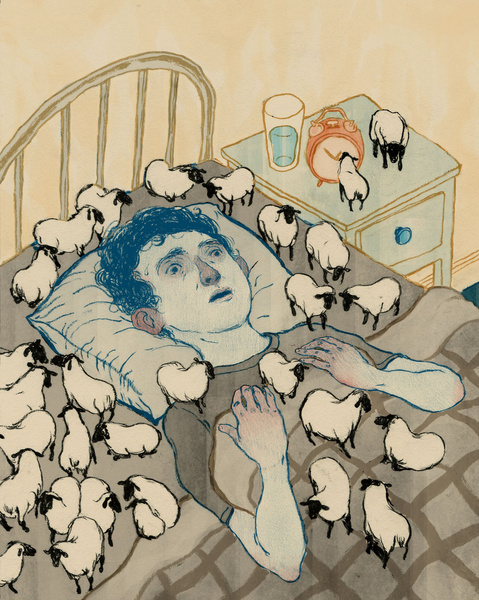 |
| (c) Tony Huynh |
Difficulty falling asleep or staying asleep is a very common complaint. Mindfulness can help but one must first radically revision the nature of the problem.
People tend to get into a negative feedback loop with insomnia: Not getting to sleep leads to worry, leads to further difficulty sleeping, leads to more worry, leads to…. What to do?
One possibility is to start thinking about the night in a different way. This is a conceptual reframing, a profoundly different paradigm regarding the issue of sleep. The normal paradigm is:“I have to get a good night’s sleep or I’ll be a mess tomorrow”. The new paradigm is“If I get a good night’s rest, I’ll be fine tomorrow”.
Amazingly, it’s possible to get a good night’s rest without necessarily sleeping much or at all. Two things are required: (1) that the body get rest by lying very still and corpse-like. (2) that the consciousness get rest by engaging in a systematic focusing technique. It does not matter which technique(s) you use, although something from the Focus on Rest technique family would probably be a natural first candidate to try—see Chapter 3 in the Five Ways manual.
If none of those techniques work, you might consider Focus In (to “divide and conquer” the agitation), or Nurture Positive, or Do Nothing…whatever interests you most.
It may be hard to believe that you can be deeply refreshed after a night of little or no sleep (but lots of relaxation and concentration). Confidence in this truth comes with time and experience. You may also discover that letting go of the preoccupation with getting sleep ironically brings sleep.
In addition to using Mindfulness in this way, other factors should also be considered. Sleep scientists have a long, standard list of suggestions to facilitate a good night’s sleep. You can easily get this information from the Internet or consulting directly with a sleep medicine specialist. To the extent that their suggestions help, you can utilize them. To the extent that they do not help, you can utilize the mindfulness strategy described above.Over the years, I’ve worked with many people who have sleep disorders spanning a wide range of intensities and causalities. My field experience tells me that the following formula almost always works.
- Utilize the suggestions of sleep experts.
- Stop worrying about staying asleep all night.
- Get fascinated with learning to rest all night.
- Train yourself in that skill by keeping the body deeply relaxed and maintaining a focus technique as continuously as possible.
- Be patient. Skill deepens with time.
Resource: “Sleep Interruption and a Good Night’s Rest“